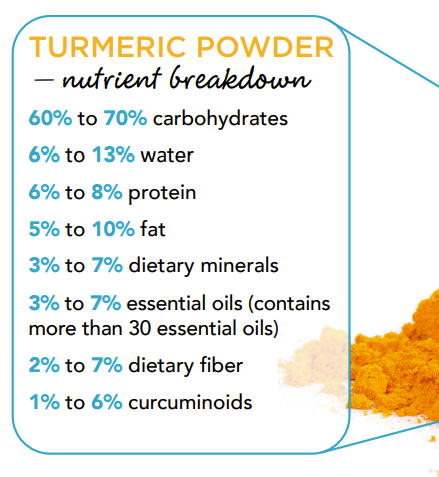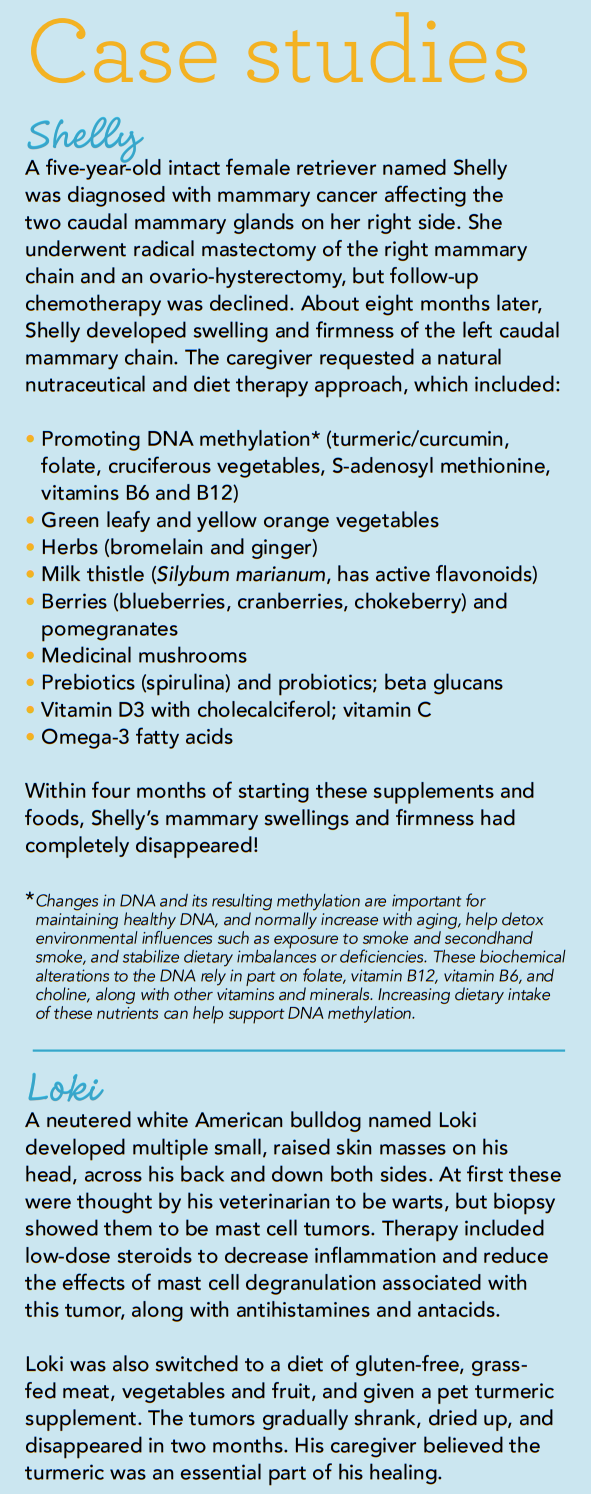Talking about turmeric – can it help treat cancer in dogs and cats?

Turmeric is an ancient medicinal spice with an array of healing qualities. It may even be helpful for treating cancer in dogs and cats.
Turmeric has been in the news a lot in recent years, not only for the distinctive flavor it adds to our cuisine, but also for its healing properties. More specifically, turmeric has been touted as a way to help battle cancer in both people and animals. Let’s take a deeper look at this ancient culinary and medicinal spice and how it can be used to help benefit dogs and cats with cancer.
Fast facts about turmeric
- Turmeric (Curcuma longa) is a flowering plant and a member of the ginger family. There are 30 to 50 species of turmeric in Asia, primarily in India and Thailand, where it has been used for centuries.
- Its major chemical constituent is curcumin, which is golden yellow, smells like mustard, and tastes like black pepper; it is approved worldwide as a food additive.
- Turmeric is a major part of Ayurveda, Siddha, and Traditional Chinese Medicine, and is used not only for people but also for animals as a common food ingredient and supplement.
- Among its many properties, turmeric protects foods from sunlight, is used in chemical analysis as an indicator for acidity and alkalinity, and relieves mild digestive problems, such as feelings of fullness and flatulence.
 Cautions:
Cautions:
- Some supplements contain black pepper to potentiate turmeric activity, but it’s important know that this can produce significant adverse effects in animals, including death.
- Turmeric products can be adulterated, and may contain cheaper, toxic agents and added color in the form of lead oxide. So it’s important to do your homework and look for quality products.
- Curcumin could increase the risk of certain bladder and kidney stones.
- It can interact with other herbs and drugs, although the overall risk is relatively low.
- The health benefits of standard curcumin are limited by poor solubility, low gut absorption, and rapid elimination. Adding olive oil or fish oils can help increase absorption.

Turmeric’s potential health benefits
While there is no solid scientific evidence that curcumin reduces inflammation, turmeric extracts could be beneficial for a variety of ailments. They may:
- Relieve symptoms of knee osteoarthritis
- Help gastrointestinal upset
- Reduce liver damage from certain drugs
- Inhibit blood clotting.
Curcumin and cancer
The use of nutraceuticals is steadily increasing – including in human and animal oncology — despite the fact that our knowledge of their mechanisms of action is still limited. Dietary changes are recognized as helping to prevent 30% to 40% of cancers, and turmeric has long been touted to be beneficial to people and animals with cancer.
Turmeric’s effects against cancer:
- Has anti-proliferative effects against colon and pancreatic cancers
- Inhibits blood vessel growth (angiogenesis)
- Protects against premature cell death (apoptosis)
- Increases DNA epigenetic methylation, which modifies gene function and regulation
- Silences expression of certain genes.
- Reduces the risk of cancer metastasis.
While curcumin has no immune-suppressive effects, it is said to help restore immune function in cancer patients. It does have antioxidant properties, although cellular immune function mediated by the thymus gland is reduced in tumor patients.
A published in vitro study from Cornell University in 2017 showed that using turmeric and rosemary leaf extracts together in animals created a synergistic response that induced cell death better than using either extract alone. The canine tumor cell lines that were studied include mastocytoma, mammary cancer, and osteosarcoma. Meanwhile, the Colorado State University Animal Cancer Center demonstrated in another in vitro study that turmeric can help stop cancer cell growth in cats even given the relatively poor ability of felines to metabolize certain drugs.
While more research needs to be done on turmeric’s benefits against cancer (and other diseases), the evidence so far indicates promise, and makes this ancient healing spice worth considering as part of a dog or cat’s cancer treatment plan.



